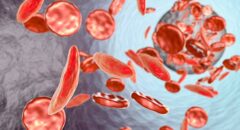
In a groundbreaking development, federal officials have approved two gene therapy treatments designed to address sickle cell disease. This approval represents a major milestone in the realm of genetic medicine and is particularly significant for the tens of thousands of individuals afflicted by this inherited blood disorder. Sickle cell disease, marked by excruciating pain crises and early mortality, has long been in the shadows of medical research. The recent approval by the Food and Drug Administration (FDA) signals a transformative moment for those grappling with the severe impacts of this condition.
While it is premature to declare patients "cured," 95 percent of recipients are now symptom-free, marking a remarkable success in the realm of genetic medicine.
Choosing Gene Therapy
In the journey towards combating sickle cell disease, the decision to undergo gene therapy is a deeply personal one, shaped by the unique experiences and considerations of each patient. Both Jennelle Stephenson and Victoria Gray, among the early recipients of sickle cell gene therapy, made a conscious choice to embark on this groundbreaking medical path, driven by a combination of factors.

Jennelle Stephenson's Leap of Faith
For Jennelle Stephenson, the choice to pursue gene therapy was a courageous leap into the unknown. Confronted with a life dominated by the constant threat of pain crises and the unpredictability of her condition, Stephenson faced the decision to reframe her entire perspective. The opportunity to participate in a clinical trial six years ago presented a potential escape from the shadows that had defined her existence for 27 years.
Stephenson's decision was influenced by the realization that her previous way of life, marked by limitations and fear, could be replaced by a future free from the shackles of sickle cell disease. The prospect of a life without the perpetual worry of pain crises compelled her to embrace the unknown, demonstrating an unwavering commitment to transforming her quality of life. Today, as she reflects on her journey, Stephenson attests to the incredible success of gene therapy, which has granted her a life she once only dreamed of.
"It's been one incredible journey of success for me," she tells USA Today.
RELATED: Day 1: Just Been Diagnosed with Sickle Cell Disease

Victoria Gray's Pursuit of Relief
Victoria Gray's journey toward gene therapy was propelled by the sheer exhaustion of enduring repeated hospitalizations and grappling with debilitating pain crises. Having weathered the storm of sickle cell disease since the tender age of three months, Gray found herself at a crossroads, tired of the relentless cycle of suffering. Faced with the limitations of existing treatments and the diminishing returns of her conventional medical care, Gray sought a transformative solution.
The consideration of a bone marrow transplant, the only alternative with potential long-term relief, presented its own challenges. The scarcity of suitable donors, coupled with the inherent risks, led Gray to explore the possibility of gene therapy. The chance to break free from the cycle of pain, even if it meant trading one set of uncertainties for another, became a compelling reason for Gray to embrace gene therapy.
Understanding Gene Therapy
Sickle cell disease, also known as sickle cell anemia in its most severe form, is a genetic disorder that alters the oxygen-carrying capacity of red blood cells. Daily activities such as climbing stairs or participating in physical education classes can trigger painful episodes due to the inefficient transport of oxygen by misshapen red blood cells. The disease, prevalent among people of color, occurs in 1 out of every 365 Black Americans and has historically suffered from underfunded research and inadequate medical attention, compounding the challenges faced by patients.
The Gene Therapy Process
The newly approved gene therapies, Casgevy and Lyfgenia, involve modifying bone marrow cells responsible for red blood cell production. Through the use of innovative technologies, these therapies aim to replace unhealthy red blood cells with healthy ones, preventing the triggering of pain crises.
While gene therapy holds the promise of transforming lives, it necessitates vigilant post-procedure monitoring. Patients typically remain in close proximity to the hospital for testing, ensuring the effectiveness of the treatment and addressing any potential complications.
Challenges and Considerations
Despite the transformative potential, gene therapy is not without its challenges. The chemotherapy phase, while instrumental, brings its own set of side effects, including hair loss and weakness. Additionally, the impact on fertility and the need for careful monitoring post-procedure underscore the seriousness of the treatment.
RELATED: Everything you Need to Know About the New Treatment for Sickle Cell
The Price of Transformation
While gene therapy offers a glimmer of hope for sickle cell patients, the cost remains a significant barrier. Casgevy, priced at $2.2 million, and Lyfgenia, priced at $3.1 million, are expensive treatments that may limit accessibility. The impact on insurance coverage and additional expenses, such as housing during monitoring periods, will influence the reach of gene therapy. Determining the ideal candidates for treatment is also a critical aspect that remains under consideration.
Dr. Stuart Orkin of Boston Children's Hospital envisions leveraging the lessons learned from sickle cell gene therapy to develop more accessible and less expensive treatments. Researchers are exploring alternatives, including less toxic drugs and in-body genetic tinkering, with the goal of broadening the scope of treatment options. As the public becomes more aware of sickle cell disease through gene therapy advancements, there is hope for increased support, funding, and understanding for those affected by this often-overlooked condition.
If you are considering gene therapy, remember to approach the treatment with realistic expectations. While the therapy holds immense promise in preventing future damage, it cannot reverse the problems already caused by the disease. Early detection and treatment are still key for managing sickle cell disease.









